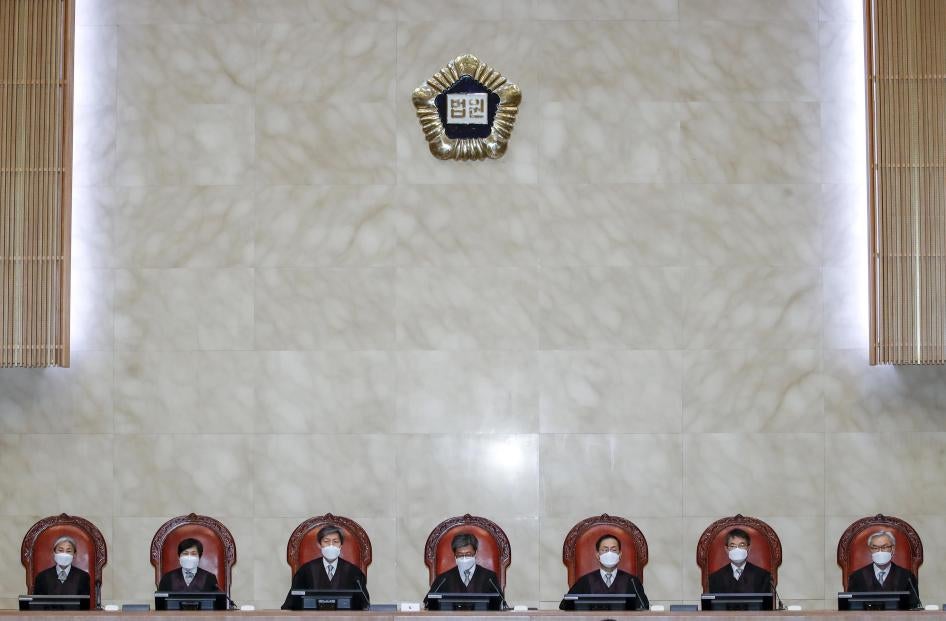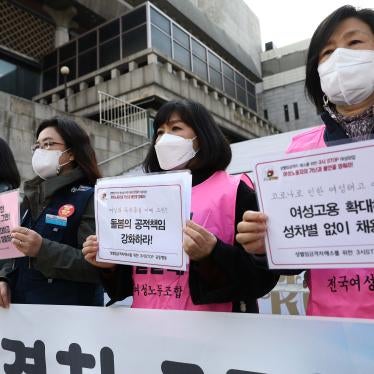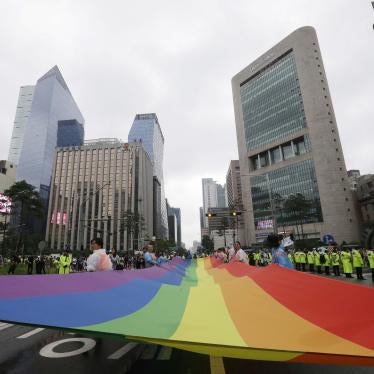In a victory for human rights in South Korea, the country’s Supreme Court on April 21 overturned the conviction of two men prosecuted under article 92-6 of the Military Criminal Act, which prohibits same-sex activity between soldiers with possible punishments of up to two years in prison.
Military authorities had accused the two men of engaging in consensual sex in a private residence while off duty. The charges against them were part of a wider crackdown on lesbian, gay, bisexual, and transgender (LGBT) soldiers in 2017. Both were convicted and given suspended prison sentences.
In its judgment overturning the convictions, the Supreme Court said that the authorities’ use of article 92-6 to punish consensual sex outside of military settings jeopardizes the autonomy, equality, and dignity of soldiers.
The ruling is a victory for LGBT rights advocates in South Korea, who have brought multiple cases challenging the constitutionality of article 92-6. While the court’s decision stops short of ruling the provision unconstitutional, it does limit its enforcement and offers needed protection to soldiers engaged in same-sex activity.
The court’s judgment is notable as lawmakers have been slow to address discrimination and stigma against LGBT people in South Korea. The National Assembly has shown little appetite for repealing article 92-6 despite the damage it inflicts on LGBT soldiers. Over the past year, lawmakers have also failed to implement antidiscrimination legislation despite reports of anti-LGBT bias in employment, education, and health care, amidst broad public support for an antidiscrimination law.
Article 92-6 has long jeopardized the rights of privacy and equality of LGBT soldiers, and the National Assembly should promptly repeal it. In the wake of the Supreme Court judgment, South Korean authorities should drop all cases against soldiers charged for consensual same-sex activity under article 92-6 and ensure their rights are respected and protected.










